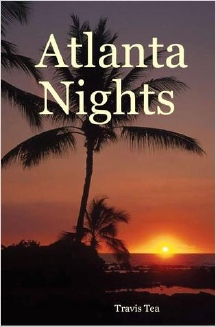One Self-Publisher Gets Its Comeuppance
 Last week, my friend Jim from my writers group shared a story about a group of science fiction and fantasy writers who pulled off a hoax with self-publisher PublishAmerica.* PublishAmerica is one of those self-publishers that claims to only accept “quality” manuscripts, presumably to stroke the egos of hopeful writers to the extent that the idea of not publishing their book is heart-breaking — and then comes the publishing fees, or the requirement that authors buy their own books. In addition, PublishAmerica made several disparaging remarks about writers within the science fiction and fantasy communities, claiming that their publishing advice couldn’t be trusted because standards are “lower” in that market than in others (if that’s true, I’ve been reading a lot of really good bad writing.)
Last week, my friend Jim from my writers group shared a story about a group of science fiction and fantasy writers who pulled off a hoax with self-publisher PublishAmerica.* PublishAmerica is one of those self-publishers that claims to only accept “quality” manuscripts, presumably to stroke the egos of hopeful writers to the extent that the idea of not publishing their book is heart-breaking — and then comes the publishing fees, or the requirement that authors buy their own books. In addition, PublishAmerica made several disparaging remarks about writers within the science fiction and fantasy communities, claiming that their publishing advice couldn’t be trusted because standards are “lower” in that market than in others (if that’s true, I’ve been reading a lot of really good bad writing.)
Well, here’s another example of really good bad writing. It’s a collaborative effort of several science fiction and fantasy writers, bent on testing the claim that PublishAmerica only publishes “quality” work. Atlanta Nights reads like the very worst fan-fiction (although I guess that’s becoming popular with traditional publishers these days, too), and has the sort of horrible writing that it takes a special talent to produce. (I should warn that the manuscript contains some mature references and language.)
PublishAmerica accepted this manuscript, which includes a chapter that was written by a computer program rather than by human beings. After the troop of writers revealed the hoax, PublishAmerica withdrew its offer. Luckily, the authors went ahead and self-published anyway, making the book available for free to all who want it. I’ve only skimmed it so far, but I may need to send it to my Kindle for a full read.
Now, I don’t have a problem with self-publishers. They provide a service for a fee — namely, publishing a book without making you jump through the hoops of traditional publishing. But just as authors who don’t even run a spell-check before publishing their books give all self-published authors a bad name, self-publishers like PublishAmerica give the whole industry a bad name. I don’t have an ax to grind with self-publishing as an industry, but it’s embarrassing to all writers, editors, and publishers when a company within the industry shows such a total lack of professionalism, both in a) misrepresenting itself as a “traditional publisher” and b) making snarky comments about writers within a certain genre. And that’s why I have no qualms about sharing this story with you.
* However, this is not meant to imply that all books PublishAmerica produces are low-quality. I’ve edited books that are going on to be self-published, and they run the gamut in quality. This is not meant to disregard the talented authors that may be among PublishAmerica’s ranks, but to bring to light unscrupulous practices that prey upon the dreams and ambitions of hopeful writers. For more information about potential offenders, I recommend Writer Beware — which is run by by the Science Fiction and Fantasy Writers of America (SFWA). Hmm, might this be why PublishAmerica are not fans of speculative fiction writers?